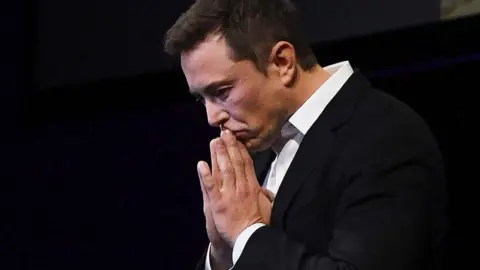Tesla is one of the most popular electric car companies in the world. Many Indian car lovers are excited about Tesla’s entry into the Indian market. However, Tesla may face many challenges in India. High import taxes, lack of charging stations, and market differences could make it difficult for Tesla to succeed. Let’s explore why Tesla might struggle in India.
1. High Import Taxes
One of the biggest problems for Tesla in India is the high import tax on foreign cars. India imposes a 100% import tax on cars that cost more than $40,000 (₹33 lakh) and a 60% import tax on cars that cost less than this amount. This means that Tesla cars, which are already expensive, become even more costly in India. For example:
- Tesla Model 3 price in the USA: $40,000 (₹33 lakh)
- Expected price in India after import tax: ₹50-60 lakh
This high price makes Tesla cars unaffordable for most Indians, especially when compared to local electric cars like Tata Nexon EV and MG ZS EV, which cost around ₹15-25 lakh.
Additionally, India has other taxes such as Goods and Services Tax (GST) and registration charges that further increase the final price. Unless Tesla sets up a factory in India, its cars will remain out of reach for most Indian buyers.
2. Lack of Charging Infrastructure
Tesla cars need a strong charging network to be convenient for daily use. In countries like the USA and China, Tesla has built Supercharger stations where cars can be charged quickly. However, India does not have many public EV charging stations yet. Most Indian cities lack a proper charging network, and Tesla would need to invest a lot of money to build its own charging stations. Without enough charging points, Tesla owners might find it difficult to travel long distances in India.
Moreover, India’s power supply in many regions is unreliable, which could affect EV charging. In rural and semi-urban areas, access to charging stations is even more limited, making EV adoption difficult outside metro cities.
3. Different Market Preferences
Indian car buyers have different preferences compared to Tesla’s main markets like the USA and Europe. Some key differences include:
- Price Sensitivity: Indian buyers prefer affordable cars, while Tesla’s cars are premium and expensive.
- Car Size and Ground Clearance: Indian roads have speed breakers and potholes. Many Indian buyers prefer SUVs with high ground clearance. Tesla’s Model 3 and Model Y have lower ground clearance, which may not be ideal for Indian roads.
- Fuel and EV Alternatives: Petrol and diesel cars are still very popular in India. Local car manufacturers like Tata, Mahindra, and MG offer electric cars at lower prices, making them a better choice for most buyers.
- After-Sales Service: Indian consumers value strong after-sales service networks. Tesla currently has no service centers in India, which may make repairs and maintenance difficult.
4. Government Policies and Local Manufacturing
The Indian government wants car companies to manufacture vehicles locally instead of importing them. Tesla has asked for lower import taxes, but the Indian government insists that Tesla should set up a factory in India. Tesla has not yet agreed to this because building a factory requires huge investments. Unless Tesla manufactures cars locally, its prices will remain high, making it difficult to compete with Indian brands.
Additionally, electric vehicle subsidies under the FAME-II scheme (Faster Adoption and Manufacturing of Electric Vehicles) benefit locally made EVs, but Tesla does not qualify for these incentives.
If Tesla builds a factory in India, it could enjoy tax benefits and incentives. However, setting up a factory requires time and resources, and Tesla is still evaluating the feasibility of this move.
5. Competition from Indian EV Brands
Indian car manufacturers like Tata Motors, Mahindra, and MG Motor are already selling electric cars at much lower prices. For example:
- Tata Nexon EV – ₹15-20 lakh
- MG ZS EV – ₹24-27 lakh
- Hyundai Kona EV – ₹23-25 lakh
- Tesla Model 3 (Expected) – ₹50-60 lakh
Since Indian brands offer affordable EVs with decent features, many buyers may prefer them over Tesla. Additionally, Indian manufacturers understand local road conditions and consumer preferences better, giving them a competitive edge.
6. Long Delivery Wait Times and Supply Chain Issues
Tesla faces global supply chain challenges, including shortages of semiconductors, battery materials, and shipping delays. If Tesla enters India, customers may experience long delivery wait times due to these global supply chain disruptions.
Additionally, setting up Tesla’s service centers, spare parts supply, and customer support network in India will take time. Delays in availability of spare parts and lack of local support could frustrate potential Tesla owners.
Conclusion
Tesla is a well-known brand with advanced technology, but it faces several challenges in India. High import taxes, lack of charging stations, different market needs, government policies, strong local competition, and supply chain issues could make it difficult for Tesla to succeed.
If Tesla wants to do well in India, it may need to set up a factory, build a charging network, partner with local service providers, and launch a more affordable model suited for Indian buyers. Until then, Tesla might struggle to attract a large customer base in India.




